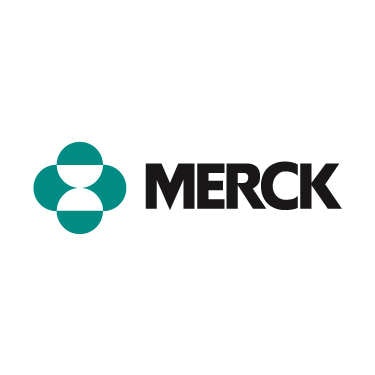The Food and Drug Administration stays busy with approvals, recommendations, and reviews. Three stories straddled the holiday weekend and carried major pipeline news for the companies involved.
What do these decisions mean for the future?
Merck’s sleep disturbance
Merck & Co., Inc. (NYSE:MRK)’s orexin inhibitor suvorexant was meant to provide a safer alternative to traditional sedative-hypnotics like Sanofi SA (ADR) (NYSE:SNY)’s Ambien. But the FDA panel recommendation on May 22 came with the caveat that only the lowest doses of the drug were considered safe. And those doses might not provide adequate efficacy.
The panel recommended a 10 mg starting dose, down from the 15 to 20 mg Merck & Co., Inc. (NYSE:MRK) wanted at the low end. The panel did consider Merck & Co., Inc. (NYSE:MRK)’s range reasonably safe, but won’t get aboard the 40 mg upper dose the company pursued.
Safety and dosage have become the forefront issues for insomnia treatments. But the field remains profitable despite the box warnings and FDA-required dosage lowering. Sanofi SA (ADR) (NYSE:SNY)’s Ambien has generic competition and it still managed worldwide net sales of €497 million (about $646 million at current conversion rates) last year.
But suvorexant’s potentially ineffective starting dose and similar safety concerns might kill suvorexant’s chances of becoming an industry-shifting blockbuster.
Celgene’s prostate priority
Celgene Corporation (NASDAQ:CELG)’s Abraxane received priority review status for first-line treatment of advanced pancreatic cancer when used in combo therapy with Eli Lilly & Co. (NYSE:LLY)’s off-patent Gemzar. Phase 3 results reported in January compared the combo with Gemzar alone. The combination showed a nearly two-month improvement in the median overall survival rate and a 59% improvement in one-year survival rates.
Research firm Decision Resources predicts that the prostate cancer market will grow to reach $1.3 billion by 2022. That assumes an approval and uptake of Abraxane and/or its competing pipeline projects, which include Merrimack’s MM-398. These drugs could potentially replace a combo therapy FOLFIRINOX — a generic combo therapy with a better overall survival rate than Abaxane but a worse safety profile.
Celgene Corporation (NASDAQ:CELG) purchased Abraxane’s maker in 2010 just to have the drug. So the pursuit of additional indications has remained a major priority. Will pancreatic cancer join Abraxane’s list of approvals? We should find out this fall. The PDUFA date for Abraxane is Sept. 21.
Glaxo’s triple feature
GlaxoSmithKline plc (ADR) (NYSE:GSK) received approval on May 29 for two melanoma drugs and a companion diagnostic. Melanoma is the most dangerous type of skin cancer, and GlaxoSmithKline plc (ADR) (NYSE:GSK)’s drugs treat melanoma that’s either late-stage or impossible to remove through surgery.
Tafinlar, formerly called dabrafenib, is a BRAF inhibitor that targets tumors with the genetic mutation BRAF V600E. Mekinist, formerly trametinib, is a MEK inhibitor that can target either V600E or V600K mutations. The concurrently approved test THxID BRAF tests which type of mutation a patient has to deliver the proper therapy.
Roche received approval for a similar setup back in 2011. The melanoma drug Zelboraf targets the V600E mutation and was approved jointly with its own companion diagnostic. Zelboraf had 2012 sales of 234 million CHF, or about $243 million U.S. dollars at current exchange rates. Mid-stage results seemed to indicate that GlaxoSmithKline plc (ADR) (NYSE:GSK)’s drugs could offer better efficacy than Zelboraf, but the drugs haven’t battled head-to-head in a trial.
The approvals will add fuel to the fire of GlaxoSmithKline plc (ADR) (NYSE:GSK)’s pipeline combo therapy using the two melanoma drugs. Combo therapy could offer better efficacy while also improving the safety profile.
Foolish final thoughts
Merck & Co., Inc. (NYSE:MRK) will lose the wind from its sails if the FDA agrees with the panel on suvorexant. The company’s still suffering from the patent loss of Singulair, and seemed to have a golden ticket with the insomnia drug. Celgene Corporation (NASDAQ:CELG)’s drug should fare better as it moves forward towards its PDUFA date.
But GlaxoSmithKline plc (ADR) (NYSE:GSK) is the public relations winner thanks to the approvals for one-third of its six key projects under review this year.
Brandy Betz has no position in any stocks mentioned. The Motley Fool recommends Celgene. Brandy is a member of The Motley Fool Blog Network — entries represent the personal opinion of the blogger and are not formally edited.
The article 3 FDA Stories You Missed This Week originally appeared on Fool.com is written by Brandy Betz.
Copyright © 1995 – 2013 The Motley Fool, LLC. All rights reserved. The Motley Fool has a disclosure policy.



